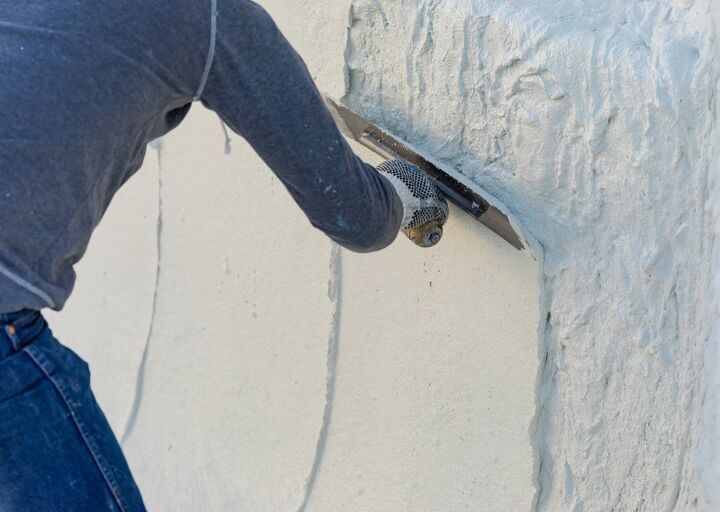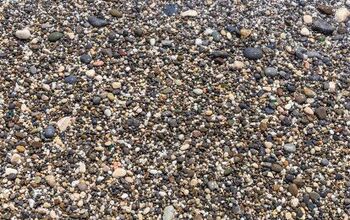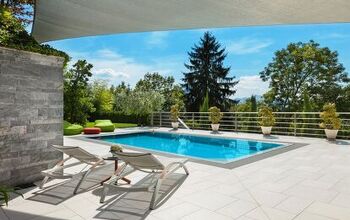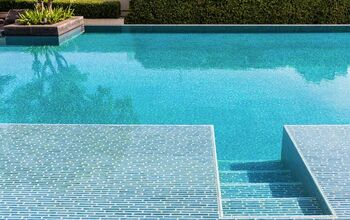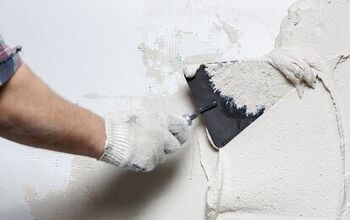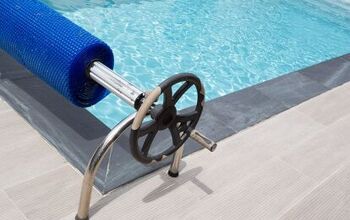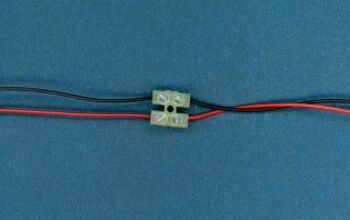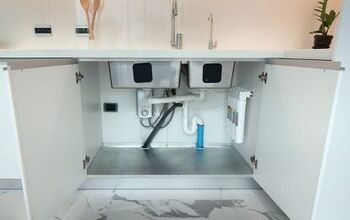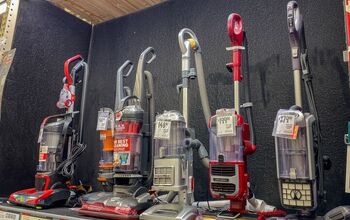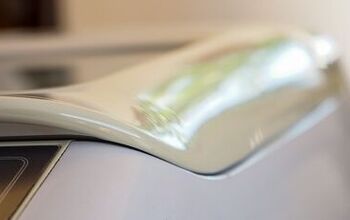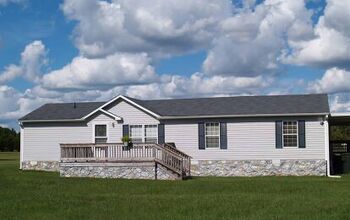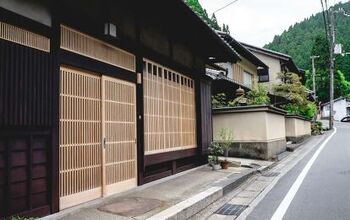Pebble Tec Vs. Plaster Pool: What Are The Major Differences?

When you have a concrete in-ground pool, you are going to have to choose a finish for your pool. There are two major options that people tend to prefer: plaster and Pebble Tec. Both of them offer great perks and not-so-great pitfalls when it comes to their use. If you need to refinish you pool, knowing what to expect is a major perk.
Plaster offers a classy finish and a remains the more affordable and widespread finish. However, it can require more pool maintenance due to the negative effect that it can have on pool water. Pebble Tec is far more durable and less likely to cause issues with water. However, it will cost more to install.
Between the two, there’s a clear winner when it comes to getting more bang for your proverbial buck. We’re going to discuss it.
Do You a Need Pool, Spa, or Hot Tub Contractor?
Get free, zero-commitment quotes from pro contractors near you.

Before We Begin: Understanding What Each Choice Is
To kick off this article, we’re going to give you a brief intro on what each finish is.
What Is Plaster Pool Finish?
Plaster pool finishes are one of the oldest finishes that you can get. They’ve been around since the 1950s and are partially made of marble and other types of stone. They offer an elegant and seamless finish to a pool. This is also one of the common finishes that you can find on the market.
What Is Pebble Tec?
Pebble Tec is a newer type of pool finish that is an upgrade on plaster in a lot of ways. It’s designed to be super durable, able to last for more than 20 years. It has a nice textured feel and also comes in a variety of colors. As the name suggests, it has a little bit of a pebble-y texture.
Pros And Cons Of Pool Plaster
Let’s start looking at the advantages and drawbacks of the most common choice on the market.
What Are The Advantages Of Plaster?
Plaster has a bunch of draws that make it a common pick for concrete pools. These perks below are what make it a favorite:
- Plaster is affordable. Actually, it’s the most affordable finish on the market.
- Oh, and it has a smooth finish. If you are looking for a finish that is easy on the feet, then this is it.
- It’s also fairly easy to apply as a finish. Most people who work in the pool industry can apply it in a pinch.
- You can find plaster in a wide range of colors. Blue plaster? Sure. White? Yep, you betcha. Green? Grey? Purple, even? Yep. Plaster is cool like that.
What Are The Drawbacks Of Plaster?
Plaster might be popular, but it’s quickly falling out of favor with builders. It’s easy to see why, too…
- Plaster is prone to discoloration and cracking. It’s not durable, period. It’s also prone to getting algae growth.
- You will have to re-plaster your pool every five years. This means you will need to keep paying year after year, especially if you choose a payment plan. Thankfully, fixes can be pretty cheap.
- You will have to maintain your pool more with plaster. Stains and discoloration are pretty common with plaster since it’s a porous material.
Pros And Cons Of Pebble Tec
A pool that has Pebble Tec is going to be a happy pool indeed. Now it’s time to take a look at the new kid on the block.
What Are The Advantages Of Pebble Tec?
Pebble Tec is hot, hot, hot. With the way things are going, it will overtake plaster as the number one most popular pool sealer out there. Here’s why we’re willing to bet that you’ll love it:
- Pebble Tec comes in a wide range of colors and also has a gorgeous pattern. It literally looks and feels like colored pebbles underneath your feet.
- The durability is amazing. It can last up to 20 years with awesome care. Most of the time, you can actually expect it to last 10 to 15 years.
- Pebble Tec is also less likely to stain or collect mildew. Since this is not as porous as regular plaster, you can usually feel safe with this. It won’t discolor anytime soon.
What Are The Drawbacks Of Pebble Tec?
While Pebble Tec is really awesome stuff, it’s perfect by any means. In fact, there are several reasons why you might want to reject it for your project. Here’s what to be aware of…
- It can be rougher on feet and swimsuits. Pebbles aren’t exactly easy on your toes. People with sensitive feet might feel it to be scratchy or painful after a while. It can also catch on bathing suits.
- Pebble Tec is pretty pricey. Many people have to say no to this material simply because it is so painfully expensive. If you want to get this, expect to pay an arm and a leg.
- Its texture may be offputting for some. If you have a visual quirk (like I do), the pebbled look of this plaster can be visually jarring.
How Much Does Each Pool Finish Cost?
Now, let’s get to the other big elephant in the room: money. For the sake of this article, we’re going to assume that you are resurfacing a basic pool. If you want to do crazy patterns in your pool or want something highly unusual, then this price guide will not reflect your demands.
Pebble Tec is more pricey, and there tends to be two tiers of work. Low-end Pebble Tec pools can cost between $5,000 to $7,000 to refinish. High-end Pebble Tec layouts can cost as much as $15,000 for an average sized pool. It’s very rare to actually see a need for repairs, though thorough cleaning can come at a premium price.
On the other hand, plaster pool resurfacing is a lot more affordable. For a 1,000 square foot pool, you can expect to pay between $1000 and $6,500. It’s just that easy. If you need to fix your pool finish, you will need to pay between $60 to $400 for typical patching.
Related Questions
Can I replaster my own pool?
Honestly, if you really want to, you probably could do it as long as you’re willing to research how to do it. However, plaster isn’t easy to work with if you’re new to this. You might notice that your plaster doesn’t look as even, or that it just looks a little lumpy. This is normal if you are not used to dealing with pool plasters.
What happens if you don’t resurface your pool?
Resurfacing your pool is the only way to make sure that your pool will not be harmed by exposure to the elements. If you are not willing to resurface your pool, your pool will begin to crack and chip away. Eventually, it will begin to leak and will become unswimmable. If it gets to the point that your concrete’s plaster cracks, you may have to pay far higher prices to repair what’s left of your pool.
How long does it take to replaster a pool?
If your pool is going to be plastered for the first time, it’ll only take four to eight hours. However, if you already had plaster on your pool, then the process will take up to three days—assuming that you don’t have rain. If you have rain, your work times may be delayed. You cannot apply plaster in the rain! In some extreme situations, it can take as long as five days to fully replaster a pool.
Do You a Need Pool, Spa, or Hot Tub Contractor?
Get free, zero-commitment quotes from pro contractors near you.

Which Is Better, Pebble Tec Or Plaster?
While plaster might have a classic veneer, it’s clear that Pebble Tec is the better option when you want to get a pool surface that will remain intact for years. Most people prefer Pebble Tec’s look if they have a more beachy-style pool. However, if you want to have the crisp, clear veneer of a smooth pool surface, then plaster is A-okay!

Ossiana Tepfenhart is an expert writer, focusing on interior design and general home tips. Writing is her life, and it's what she does best. Her interests include art and real estate investments.
More by Ossiana Tepfenhart



